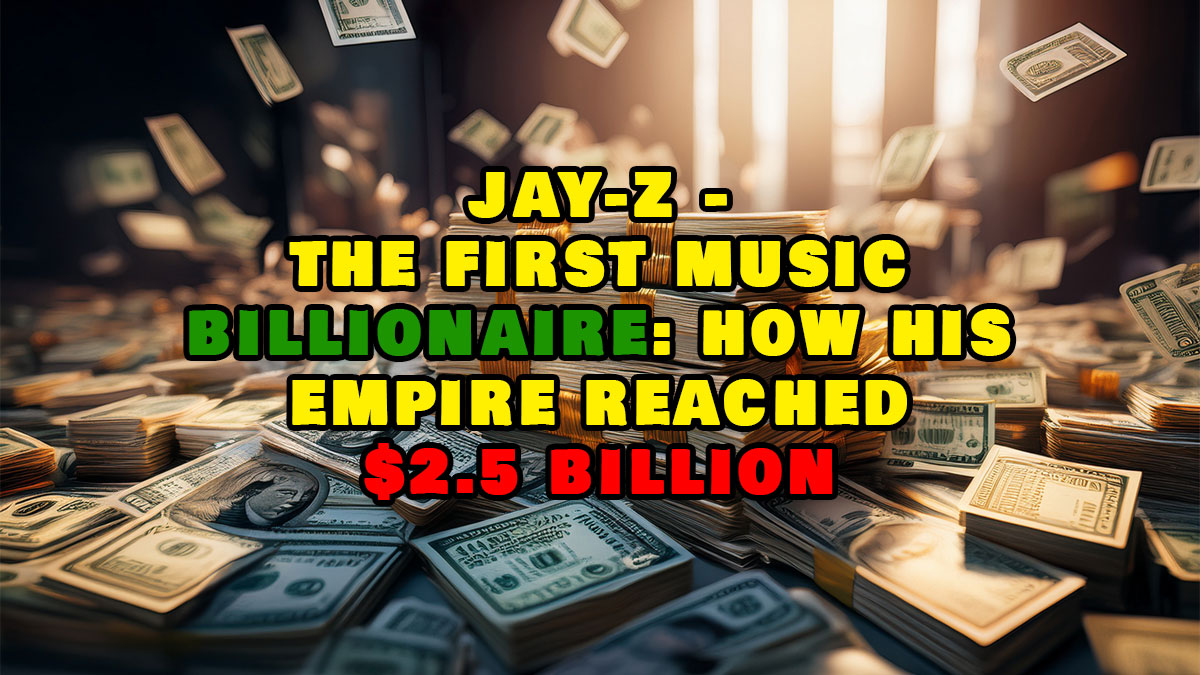Since being named by some media outlets in 2019 as the “first music billionaire,” Shawn “Jay-Z” Carter has continued to expand his empire to reach an estimated fortune of around $2.5 billion today. This figure, while impressive, is based on public estimates that combine various types of assets: stakes in brands, tech investments, entertainment companies, music catalogs, real estate, and artworks. Valuations vary depending on the methods used, and the exact breakdown of each sector remains open to discussion. Music likely served as the initial foundation, but most of this wealth now comes from his entrepreneurial activities and strategic investments.
Jay-Z’s story is that of an artist who, from the start, sought to control not only his music career but also the financial structure behind it. With Roc-A-Fella Records and later the Rocawear fashion brand, he generated revenue that formed his starting capital. Early on, he viewed music as a launchpad for broader business ventures. Album sales, tours, and royalties financed stakes in various industries. Observers note that the share of income directly tied to music has now become a smaller portion of his total wealth.
Spirits Brands and the Move into Luxury
Among the most important drivers of his fortune are his liquor brands. One of the most iconic is Armand de Brignac, also known as “Ace of Spades,” which he repositioned as a luxury champagne with a strong image. Jay-Z turned it into a symbol of success while retaining a stake in the business after selling a share to luxury giant LVMH, a move that boosted the brand’s overall valuation. He also holds a stake in D’USSE, a premium cognac targeting an upscale audience. These ventures have made a significant contribution to his fortune, though their valuation depends heavily on the health of the luxury market, which can be volatile.
Just as Jay-Z strategically diversified his portfolio beyond music, investors and players alike are often drawn to opportunities such as a casino with no deposit bonus in Germany to maximize value with minimal initial risk.
Tech Investments and Venture Capital
Technology investments represent another major pillar of his empire. Jay-Z made early investments in companies like Uber, whose value surged after its IPO. He also acquired the music streaming platform Tidal, relaunched it, and later engaged in partial sales or strategic partnerships. These moves show his ability to spot opportunities, develop them, and monetize them at the right time. The exact profits from these deals are not always public, but their impact on his wealth is undeniable.
Roc Nation: A Revenue and Influence Engine
Roc Nation, his management agency, music label, and production company, is another cornerstone of his empire. In addition to managing artists and athletes, Roc Nation negotiates sponsorship deals, distribution agreements, and institutional partnerships, such as its high-profile deal with the NFL. This vertical integration allows Jay-Z to capture value across multiple points in the entertainment value chain and solidify his influence. While the exact market valuation of Roc Nation is unclear due to a lack of public financial data, its strategic role is evident.
Music Catalog, Real Estate, and Diversification
Managing and monetizing his music catalog, as well as his publishing rights, provides an important source of recurring income. In today’s climate—where investment funds and corporations are paying high prices to acquire music catalogs—owning a culturally significant and commercially active repertoire is a major financial asset. For Jay-Z, this represents both a cultural and economic capital base that could increase in value over time.
In addition, he owns diversified assets, including residential and commercial real estate as well as art collections. These holdings, less exposed to the volatility of specific markets like music or luxury, provide stability and reinforce his financial position.
Final Words
Jay-Z successfully transitioned from artist to full-scale businessman, capable of leveraging his image and earnings across multiple industries. His current fortune is built on a combination of tangible and intangible assets, publicized deals and quieter moves. It reflects a decades-long diversification strategy, with bets that were sometimes risky but often profitable. However, the exact value of his empire remains partly opaque, and estimates vary among analysts. The future trajectory of his wealth will depend on the performance of his brands, overall market conditions, and his ability to identify new high-potential opportunities.





